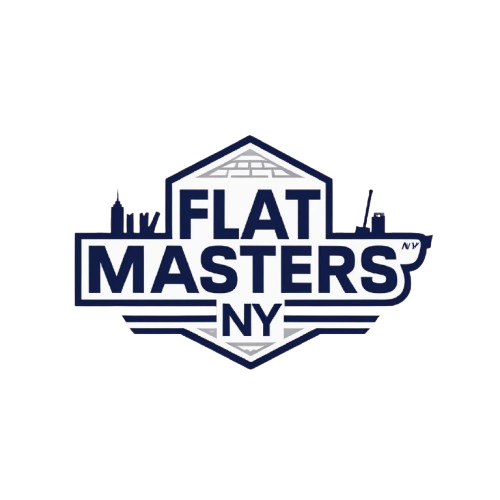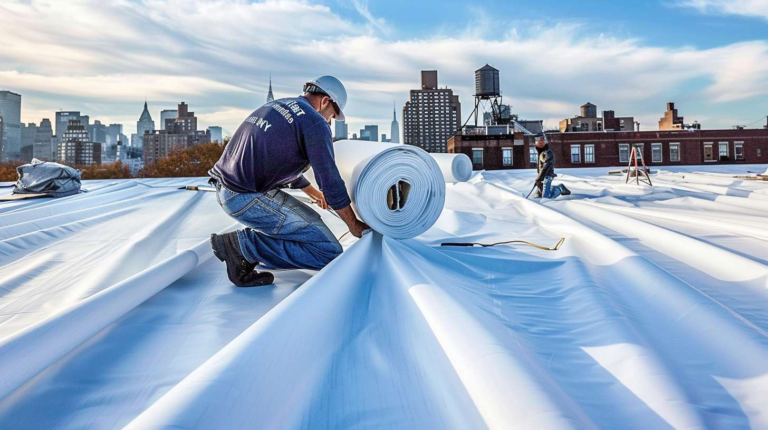Professional Bathroom Exhaust Fan Flat Roof Venting Solutions
Look, I've been installing flat roof vents for bathroom exhaust fans across Queens for over two decades, and I can tell you right now - this isn't a weekend DIY project. The average cost for professional installation runs between $450-$850 depending on your roof membrane and the complexity of the penetration. But here's the thing that most homeowners don't realize: getting this wrong can cost you thousands in roof repairs down the line.
Just last month, we had a call from a homeowner in Astoria who tried to install their own bathroom vent through their EPDM roof. Water damage to three apartments below. Insurance headache. Could've been avoided with proper flashing and membrane integration from day one.
Understanding Flat Roof Bathroom Ventilation Challenges
Flat roofs in Queens present unique challenges that pitched roofs don't have. When you're dealing with a bathroom vent flat roof installation, you're not just cutting a hole and slapping on a vent cap. The membrane system, whether it's EPDM, TPO, or modified bitumen, needs to be properly integrated with the penetration. I've seen too many hack jobs where someone just cuts through the membrane and hopes for the best.
The salt air from Flushing Bay doesn't help either. It accelerates corrosion on cheap vent caps, which is why we always recommend stainless steel or powder-coated aluminum units for our Queens installations.
Proper Installation Methods for Bathroom Exhaust Vent Flat Roof Systems
Here's how we approach every bathroom exhaust vent flat roof installation at Flat Masters NY. First, we locate the optimal position - typically within three feet of the fan location to minimize ductwork runs and potential condensation issues. The vent needs to be positioned away from any roof drains, HVAC equipment, or areas where water might pool.
For EPDM roofs, we use a curb-mounted system with a 6-inch high curb minimum. The curb gets adhered and mechanically fastened to the deck, then the EPDM membrane gets fully adhered up and over the curb with termination bar and sealant at the top. The vent cap then mounts to the curb with proper counterflashing.
TPO installations are similar but require heat-welded seams instead of adhesive. Modified bitumen systems need torched-on base flashing with mineral surface cap sheets. Each membrane type has its specific requirements, and cutting corners on any of them leads to leaks.
How to Vent a Bathroom Fan Through a Flat Roof: Professional Process
When customers ask me how to vent a bathroom fan through a flat roof, I always start with the planning phase. You need to determine the shortest route from fan to roof while avoiding structural members and maintaining proper slope for drainage. The ductwork should be insulated and have a minimum 1/4 inch per foot slope toward the exterior.
The actual penetration process involves several critical steps:
- Mark and verify the penetration location using a chalk line from below
- Cut the roof membrane in an X pattern, folding back the flaps
- Install the curb or flashing base with proper sealants
- Integrate the membrane system with the penetration
- Install the vent cap with appropriate backdraft damper
- Test the system for proper airflow and weatherproofing
I can't tell you how many times we've been called to fix installations where someone skipped the curb and tried to flash directly to the roof surface. Water always finds a way, especially during our Queens winter freeze-thaw cycles.
Common Mistakes with Flat Roof Vent for Bathroom Fan Installations
The biggest mistake I see with flat roof vent for bathroom fan projects is using pitched roof components on flat applications. Those little plastic roof jacks you see at Home Depot? They're designed for shingled roofs with gravity drainage. On a flat roof, they'll leak within the first heavy rain.
Another common issue is improper ductwork sizing and routing. A 4-inch duct should stay 4 inches all the way to the roof - don't reduce it down to squeeze through a smaller penetration. And for the love of all that's holy, don't terminate it into the roof cavity or soffit area. I've seen bathrooms that stayed humid because the "vent" was just dumping moisture into the attic space.
Condensation control is huge too. Without proper insulation and slope, you'll get water backing up into the fan housing. Carlos, my lead installer, always wraps the entire duct run with R-6 insulation minimum, and we use vapor barrier tape on all joints.
Material Selection and Cost Considerations
For flat roof vent for bathroom exhaust fan installations, material quality makes all the difference. We typically use Broan or Fantech roof caps for most residential applications. Commercial grade stainless steel units run $150-$300 just for the cap, but they'll outlast three cheap units.
Here's what you're looking at cost-wise for a complete professional installation:
- Basic residential installation: $450-$650
- Complex routing or membrane repair: $650-$850
- Commercial grade materials: Add $200-$400
- Emergency leak repairs: $300-$500 additional
The ductwork itself isn't expensive - maybe $50-$80 for materials on a typical run. But the labor and expertise to do it right, that's where the value is. We warranty our penetration work for 10 years because we know it's done right the first time.
Local Queens Considerations
Working in Queens means dealing with attached buildings, co-op boards, and sometimes tight access situations. That three-story walkup in Elmhurst? We need to coordinate with tenants, protect common areas, and sometimes use specialized equipment to get materials to the roof.
Building codes here require dampers on all exhaust penetrations, and some co-ops have additional requirements about vent cap appearance. We keep several approved styles in stock because waiting three weeks for board approval isn't practical when someone's bathroom won't ventilate properly.
The weather patterns here also matter. Our wet springs and humid summers mean bathroom fans work overtime. Winter freeze-thaw cycles test every penetration. That's why we always use ice and water shield around our penetrations, even though code doesn't specifically require it on flat roofs.
Maintenance and Longevity
A properly installed bathroom fan flat roof vent should last 15-20 years with minimal maintenance. The key is annual inspections of the flashing and sealants. We recommend checking the damper operation twice a year - spring and fall. Dampers that don't close properly let cold air back into the building, and ones that don't open reduce fan efficiency.
Clean the vent cap annually too. Lint, leaves, and general debris can restrict airflow. On commercial buildings, we see bird nesting issues, so installing appropriate guards makes sense.
Oh, and another thing about maintenance - if your bathroom fan starts making noise or doesn't seem to move air like it used to, check the roof termination before replacing the fan. A blocked or damaged vent cap can make a good fan perform poorly.
Why Professional Installation Matters
I've been called to fix more DIY bathroom venting disasters than I care to count. Last Tuesday on 31st Street in Jackson Heights, we had to replace an entire section of TPO membrane because someone tried to install a vent with roofing cement and duct tape. The resulting leak damaged two apartments below.
Professional installation means understanding how different roof membranes behave, having the right tools for clean cuts and proper flashing, and knowing local code requirements. We carry liability insurance specifically for this work, and our installations meet manufacturer warranty requirements.
The reality is that bathroom ventilation failures can lead to mold issues, structural damage, and expensive remediation projects. Getting it right the first time with professional installation protects your property investment and ensures years of trouble-free operation.
When you're ready for professional bathroom exhaust fan flat roof venting in Queens, Flat Masters NY has the experience and expertise to handle your project correctly. We've been protecting Queens roofs since 2001, and we understand exactly what it takes to integrate mechanical systems with flat roof membranes. Give us a call at (917) 994-7618 for a comprehensive evaluation of your ventilation needs.


